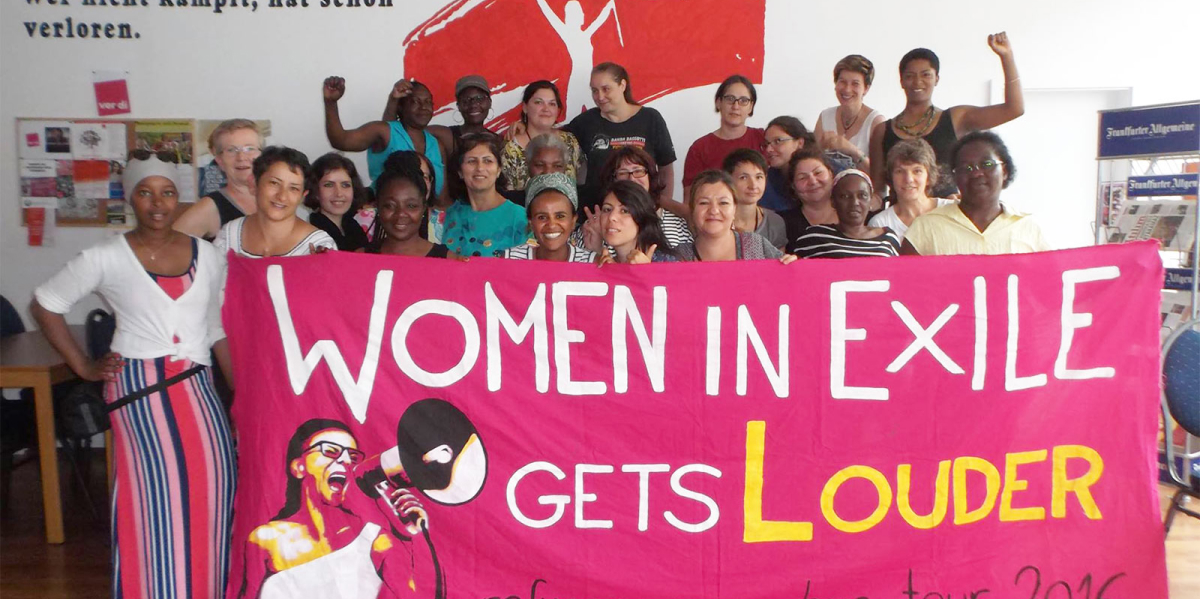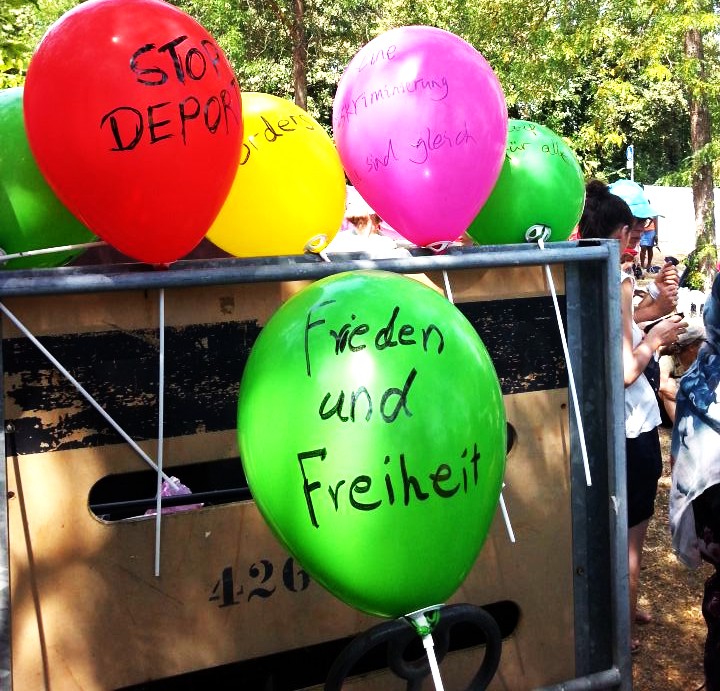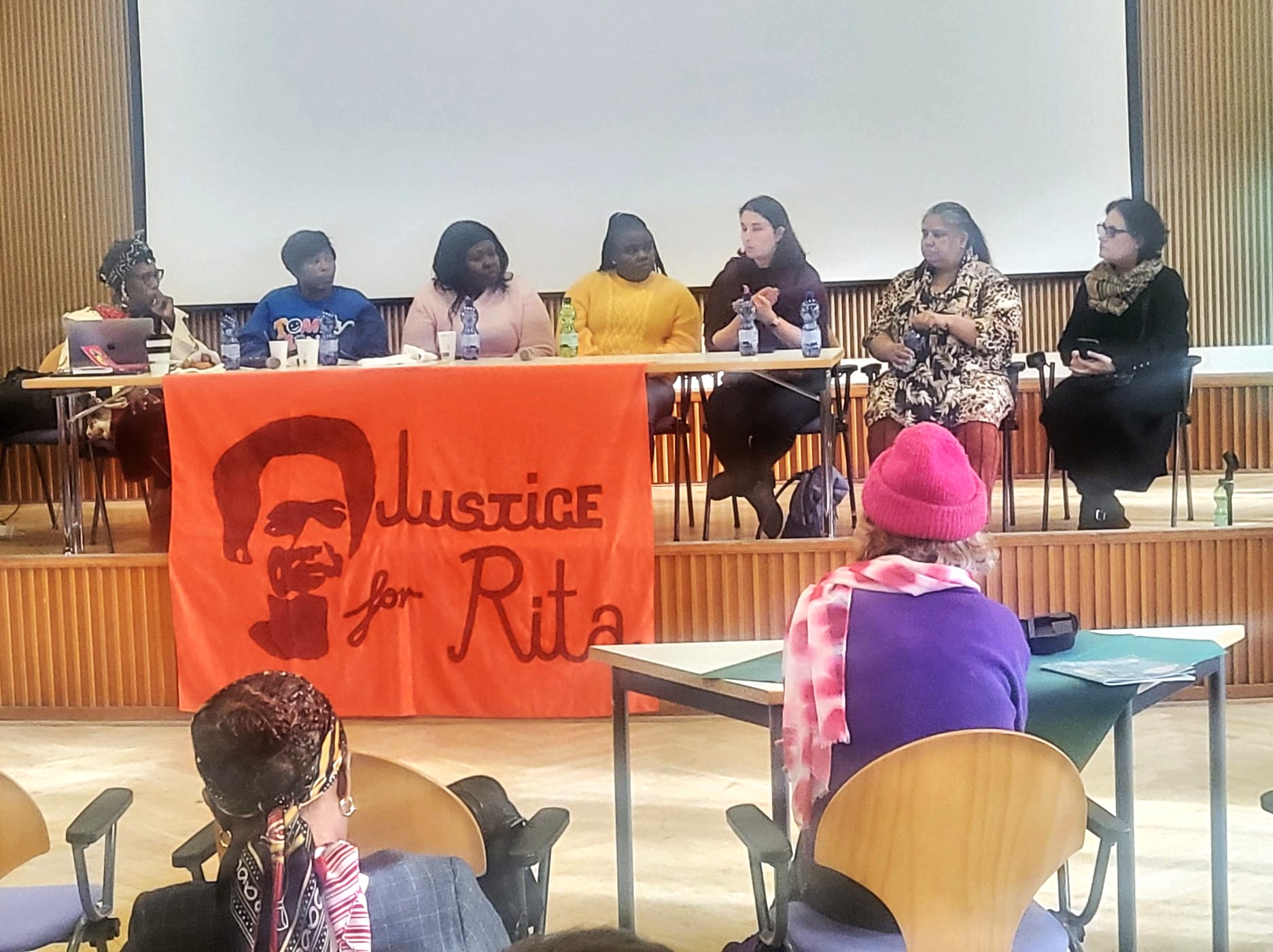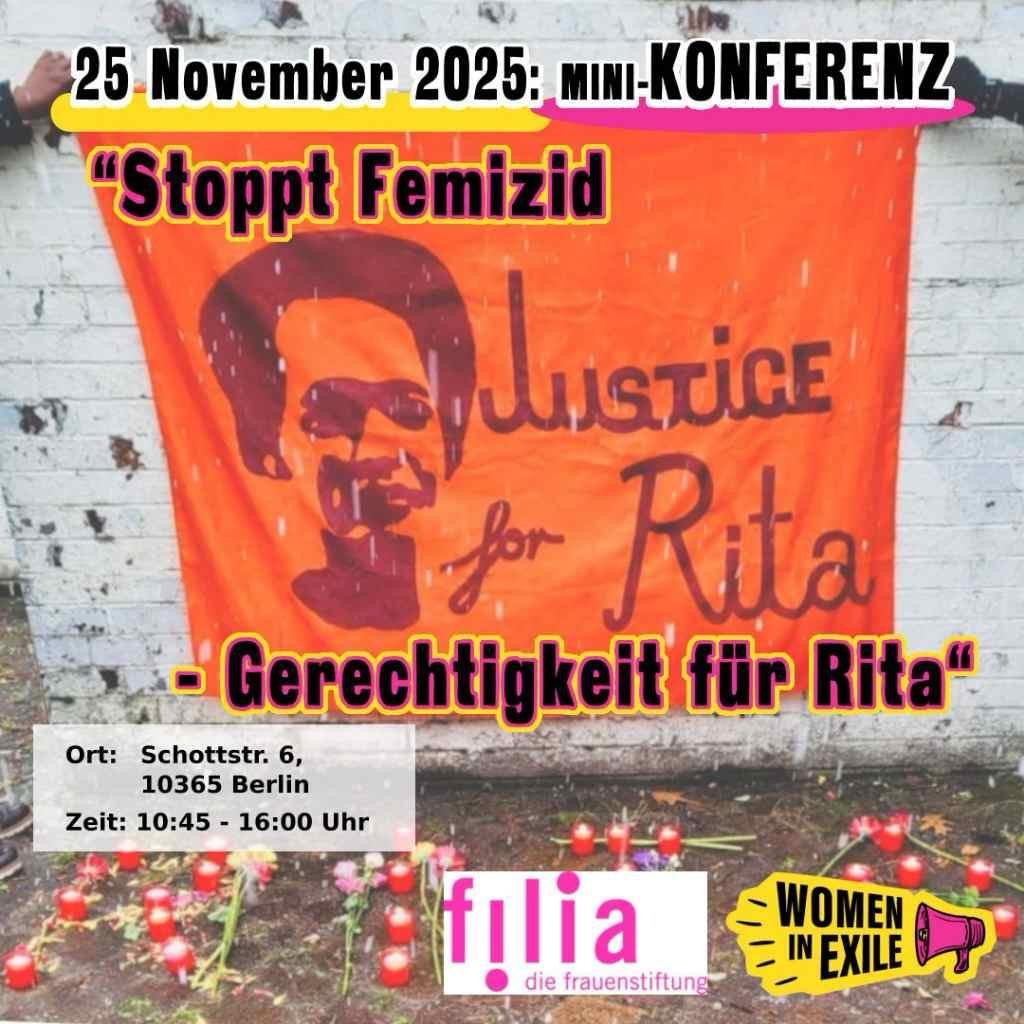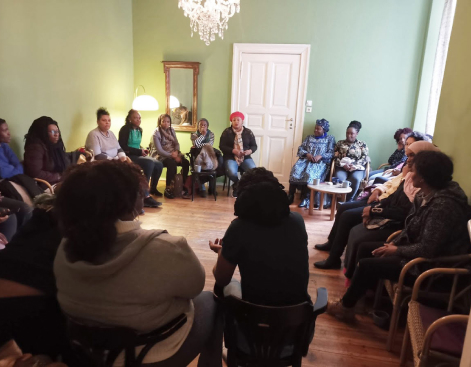Excerpt from pages 179–180 of our book “Breaking Borders to Build Bridges” available through Edition Assemblage
Mecklenburg-Vorpommern (M-V) is a large German state with a relatively small population. Apart from Rostock, Greifswald and Schwerin, there are almost only small towns, so A and B are far apart. The locals don’t talk much and like to maintain social distancing – even before Corona they did. Silence is a frequent companion in everyday life. In M-V, asylum seekers are forced to live in outlying areas, on the outskirts or in remote towns. Entrenched Nazi structures and everyday racism (from abuse through to attacks) are just as much a problem as the restrictive immigration authority and the entanglement of the police and the Interior Ministry in the right-wing prepper scene. Those who fight against racism in M-V often don’t know where to start. Women in Exile visited M-V in the summer of 2021 and brought the answer with them: we’ll start right here and now. Without compromises, loud and in mutual solidarity. A Nazi obstructs the Solibus with his car and shouts abuse? No problem, 20 women* are louder. Someone photographs the group without asking first? No problem, the photos are deleted before he knows it. The cops ban a spontaneous rally in front of the state parliament? No problem, it takes place anyway. People in a nearby cafe next door are annoyed by a rally? No problem, they get to hear more. Woman* power means taking space. Woman* power also means giving yourself the space you need – like in empowerment workshops held in several towns or in front of the Nostorf-Horst transitional Lager for asylum seekers, in Rostock, Jördenstorf, Karnitz, Stubbendorf, Frankenthal and Greifswald.
This is rare in M-V and has visibly bolstered women* of colour and women* with experience in Lagers as spokeswomen* – those who impart knowledge. Supporting each other, sharing advice and experience, exchanging ideas and becoming aware of our own rights can give us a most beneficial and energizingimpetus. But we never lose sight of the great goal of a society without oppression. Together with the newly founded group, WiE/M-V, we now face the challenge of enhancing Women in Exile’s impetus. We returned from the joint tour with many lasting impressions, yet with a lot of questions about what Women in Exile’s woman* power will look like in a large, conservative state far away from urban areas, especially in terms of our common struggle. More important than all ruminations is the courage to believe in change. The conviction that our struggles will overcome the injustices.
